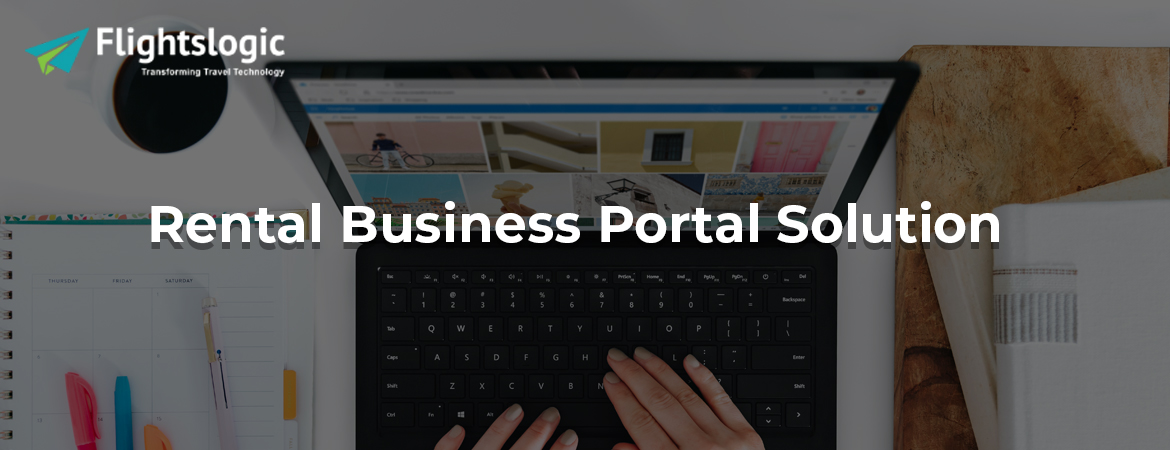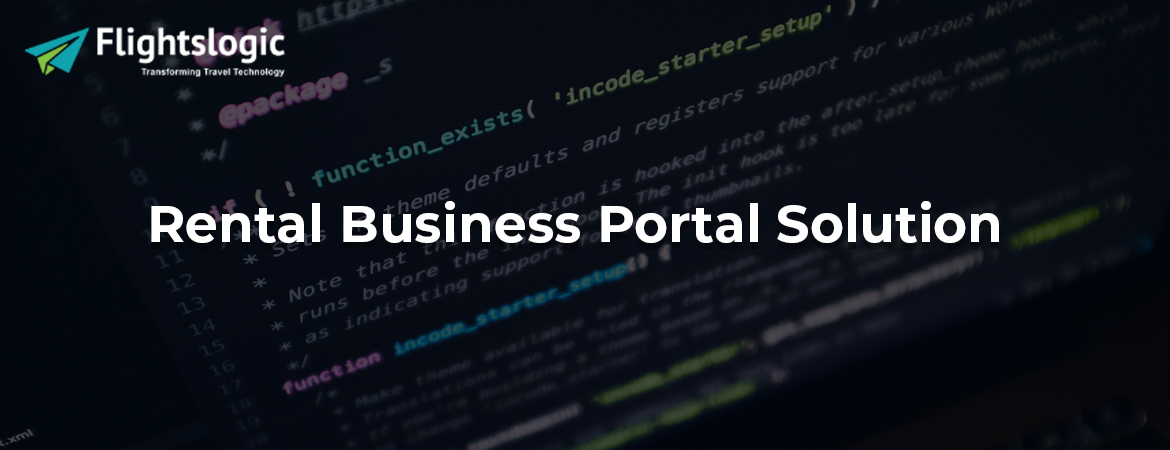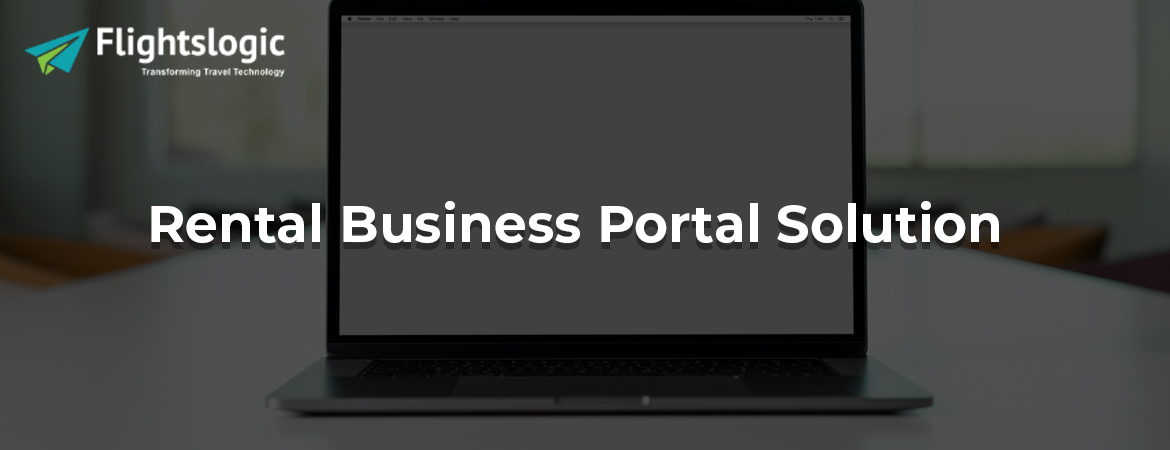Rental Business Portal Solution - Transform and simplify the way businesses source and rent what they need
Launch your online rental marketplace to offer a quick and simple way to rent out anything – from equipment, space, cars, products and more.

What is a Rental Marketplace?
A rental marketplace is an online platform where users can rent various types of properties from each other or from a platform itself (see the types below).
P2P (peer-to-peer) platform with a mediator. Users owning property get an additional income, other users (renters or tenants) get an opportunity to rent this property and save money, and a platform itself gets a commission for connecting the two.
B2C platform. The platform itself offers products, and users can rent them out (the system works similar to the e-commerce model).
Currently, there are lots of marketplaces where users can rent pretty much anything. Look at these examples (both for P2P and B2C markets):
-
Living spaces (Airbnb, HomeToGo, Flipkey);
-
Workspaces (WeWork, LiquidSpace, MatchOffice);
-
Clothes (Rent the Runway, FashionPass, HURR);
-
Jewelry and accessories (Rent Jewels, Happily Ever Borrowed);
-
Carpooling (BlaBlaCar, Comovee, Twogo);
-
Bikes (Spinlister, Mobike, O.Bike);
-
Sporting goods (Sports Rent, Sharewood, Quipmo);
-
Technology (Rent A Computer, Grover, IT Xchange), etc.
How to Get Started with your Rental Marketplace?
There are three key problems you need to address before you start a rental marketplace.
Platform– Whether you’re building an equipment rental marketplace or a home rental marketplace, you need a strategy.
Idea Generation– You’ll require an in-demand idea that solves problems and is valuable to your target customers. For instance, Get around banked on the problem that every American needed a car to get around. But a lot of these cars were not used efficiently as they would often sit and collect dust in the owner’s garage. Instead of letting a car sit in the garage, they designed a way for car owners to generate passive income, while helping others in need, in an eco-friendly way nonetheless.
Business Model– Some marketplaces charge a listing fee. Others offer premium services inside various subscription packages. Also, there are others that generate revenue based on a commission basis. Simply put, there are various ways you can generate income from your marketplace. However, by only choosing the right combination can you ensure a successful and prosperous future for your online venture.
Do you plan on building it from scratch, or do you intend to use a rental marketplace builder such as FlightsLogic or other alternatives? Both have their pros and cons and choosing one helps you set aside the appropriate development budget required for the project.
How to Build Your Rental Marketplace?
Now that you have a basic idea of the work involved, let’s discuss how you can build a profitable rental marketplace. However, if you’re interested in learning how to fish for in-demand ideas, or choosing the right business model, you can read our other blogs on niche marketplaces or how to choose the perfect revenue model.
So, how do you build the perfect rental marketplace? Let’s find out!
Source
How does a rental marketplace operate? We cannot build individual components of a marketplace without knowing the requirements first. All marketplaces follow a basic workflow.
Search- The user/customer searches for a listing based on location, availability, and booking dates.
Results- The platform lists possible options alongside fees, renting charges, and other terms and conditions.
Booking- Once the customer has decided, they pay a rental fee to the marketplace to rent the goods.
Approval- The service provider now has the option to either approve or reject the rental request.
Confirmation- After confirmation, the customer proceeds to receive the said goods on a predetermined date.
Payment- The marketplace can either pay the service provider as soon as the customer makes the payment, or hold the funds until the rented has received the goods. The payment system varies among different marketplaces.
Return- At the end of the rental period the customer returns the goods (or it gets picked up, depends on the online marketplace business model).
Rate & Review- The customer and the service provider rate each other based on their experience.
This workflow will help you decide what features you need for your online marketplace
Consider user experience while Building a Rental Marketplace

You can have all the latest features in your rental marketplace but they won’t do you any good unless it is user-friendly. The human attention span has been shrinking over the past decade. A complicated UI (User Interface) will push your prospects to go elsewhere.
So when designing your online rental store, make sure the design is,
Functional – Relevant to your product and contains all the necessary features.
Likable- Easy to understand UI with quick access to filters, cart, profiles and other important navigation features.
Know the must-have features in a Rental Marketplace
Although every marketplace niche requires some unique features, certain features are common across most successful platforms
Your customers are accustomed to certain features and they expect your rental site to include them as well. Doing something different might seem appealing but can cause unnecessary challenges which could cost you precious customers. So for starters, stick to the basics and experiment once you’ve built a respectable customer base.
Here is a list of some of the most important features you should consider including in your marketplace.
User Profiles-
Profiles/accounts are an absolute necessity as without them you cannot rent goods to customers. They contain a customer’s personal information such as name, pictures, address, payment options, and anything else the marketplace deems necessary. They also promote security and trust between the renters and the rented.
Easy Listening-
It is very important to create a listing feature that is not too complicated. Otherwise, renters won’t bother to create listings and without a respectable number of offers, they will look elsewhere for solutions.
Location-
The requirement of this feature depends on the kind of marketplace you’re trying to build. If it’s something like a car or bike renting marketplace, a map feature will enable customers to hunt for products in their preferred location.
Wishlist and Advanced filters-
Although 50% of shoppers choose retailers for their first purchase, they disproportionately gravitate towards online marketplaces for repeat purchases. A wish list enables them to bookmark those sellers. This makes it more likely for them to return for future transactions.
Also, 28% of online consumers prefer Amazon search to fish for products online, making filters one of the most commonly sought after features in a marketplace So, if you have a multitude of products, advanced filters enable your customers to search for items more efficiently.
Booking Management-
Booking management allows a multitude of advantages. Firstly, it allows service providers to manage listings and make them available for future rentals. Secondly, customers can decide based on availability. As a result, providers won’t receive double bookings which in turn reduces the cancellations, thereby improving the marketplace experience. For instance:
-
Sellers can manage appointments from the backend using a calendar:
-
Customers too can book appointments by directly clicking on the calendar from their perspective:
Reviews and Feedback-
Reviews go a long way in securing the user’s trust. They are not buying an object; they are renting something which someone has already used. Reviews create an atmosphere of trust, ushering users to seal the deal.
How To Make Money With An Online Rental Marketplace ?

That’s one of the most interesting questions because a peer-to-peer renting website doesn’t have a specific product to offer, but it provides a seamless experience for users.
Let’s see how a superb rental service can bring you money.
Commission
The most widely-used and most well-known model in sites like Airbnb. The renter’s payment consists of two components: rent plus commission (a percentage of the rent).
Premium listings
Those willing to promote their listings can pay for putting it at the top of the search. It’s a win-win collaboration for both an owner and a mediator.
Payment for a listing
Product owners pay for the listing’s publishing. It’s a good option if you attract many owners to the platform or if there is a wide variety of products.
Selling ad space
You may include advertising blocks in the website’s interface and sell them to the companies promoting their offerings. It’s better to collaborate with businesses somehow linked with your main offering (for example, bicycle riding events on the bike renting platform).
Benefits of Our Booking and Rental Marketplace
Secure Source Code
FlightsLogic marketplace platform is built with PHP with 100% source code and is more secure to use.
Social Media Integration
The Customer can give genuine feedback and can know about services information through our social media integration.
User Management
Every customer and vendor can manage, maintain, and operate their rental, delivery, reviews, and more.
Admin management
Without any technical knowledge, the admin can handle and manage the rental marketplace platform easily
Advanced filter and search option
The registered user can search the rental products by city wise, category and subcategory and filter by ratings, and many others.
Easy customization
The code of the website can be customized according to the client goal and business needs
Wrapping Up:
Building an online rental platform from scratch can be a time-consuming process, so it’s a good idea to benefit from readymade solutions. The good news for entrepreneurs is that they can manage this marketplace without any coding skills. Also, you will get all the important features for your marketplace within the scheduled time.


